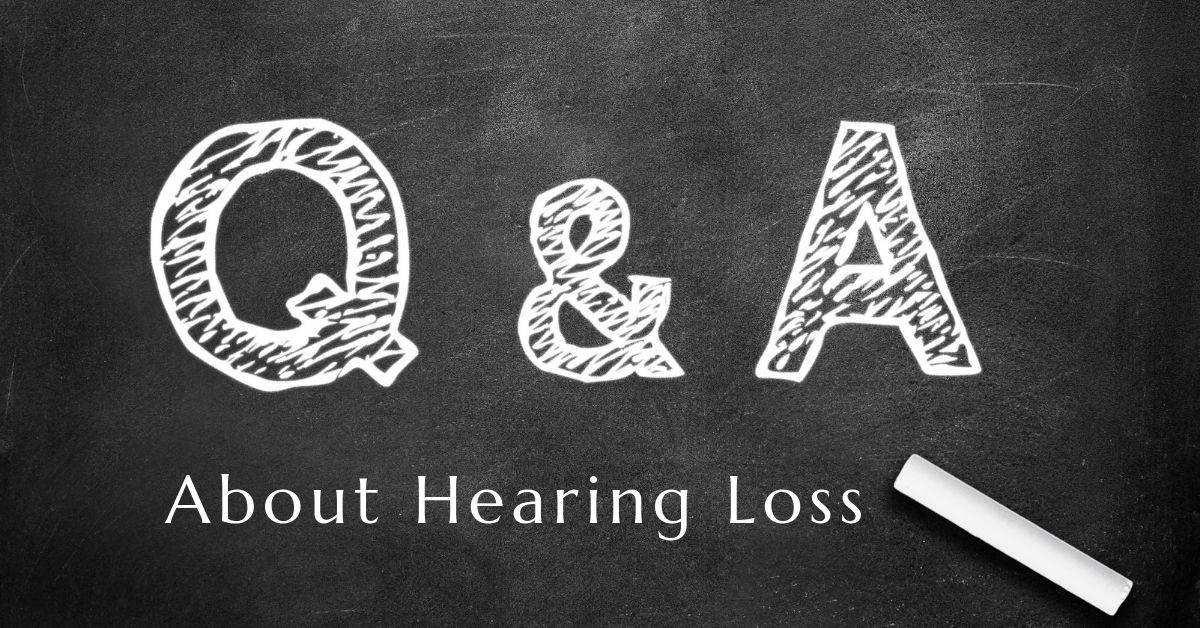- How Fast Can Hearing Loss Progress? - April 10, 2024
- Movie Enjoyment for Hearing Aid Users - March 13, 2024
- Predicting the Future of Hearing Healthcare - February 14, 2024
Asking questions about hearing loss can be hard, and there are a few questions you’re afraid to ask. We believe there are no dumb questions when it comes to your hearing health, and you should ask as many questions as you need to have a clear picture of your health. Below are some common questions and answers about hearing loss to put your mind at ease.
Do I Need to Wear Two Hearing Aids?
You might think that your hearing loss is worse in one ear than the other. Just like you have slightly different prescriptions in the two lenses of your glasses, hearing loss affects your ears differently. However, to think that you have one “good” ear and one “bad” ear is a mistake. Compared to the bad ear, you good ear might seem to be hearing very well, but the reality is that 90% of those with hearing loss experience hearing loss in both ears.
Part of the reason wearing two hearing aids is important is that your brain uses auditory signals from both ears to make sense of the world around you. When you hear from both ears, you can locate where sounds in the environment are coming from, and you’ll have more complete information about the space you’re in. Wearing devices in both ears will also reduce listening fatigue, and help you hear with ease. You’ll have more energy for other things, and won’t need to stress about your hearing.
Another reason to wear two hearing aids is because your ears are actually responsible for hearing different things. The two sides of the brain process different kinds of information, with one side being more rational and the other more emotional. The ears are the same way, and the left ear is more sensitive to certain sounds like music, while the right ear is better at hearing speech. Treating the hearing loss in both ears means you’ll fully enjoy all the sounds around you.
Will My Hearing Loss Progress So Far That I’ll Go Deaf?
While it’s true that your hearing will continue to deteriorate, hearing health specialists agree that you’ll probably never go completely deaf. If you have sensorineural hearing loss, or hearing loss caused by damage to the cells of the inner ear, your hearing loss will get worse up to a point, but after that will likely remain steadier. If you have conductive hearing loss, or hearing loss caused by damage to the middle ear, you could face sudden and severe hearing loss, or even experience deafness due to a ruptured ear drum.
One way to prevent further deterioration of your hearing health is to seek treatment as soon as possible, and invest in hearing devices that will help you hear. Like any unused muscle, your hearing will get worse without exercise, and if you can’t hear, your auditory system will start to weaken. Those with untreated hearing loss face rapid cognitive decline, and even shrinkage in the brain. If you have hearing loss, wearing the hearing aids recommended by your hearing health specialist will protect your brain and safeguard your hearing.
Can I Use a Natural Remedy for Hearing Loss?
Sadly, there aren’t any natural remedies for hearing loss. Hearing loss is caused by damage to the cells of the middle hear or inner ear, or by damage in the brain along the auditory nerve or in the auditory centers. Once damaged, these cells can’t be repaired or regenerated, so there’s no natural solution to hearing loss. The best thing you can do is protect yourself from the common causes of hearing loss, such as excessively loud noise, infections, injury, or ototoxic medications. Avoid exposure to dangerous sounds, and wear ear protection. Keep your middle ear safe by overcoming the temptation to put anything into your ears. They’re self-cleaning, so put down the Q-tips and visit your doctor if you feel that they’ve become blocked with ear wax.
Hearing Aid Services of Antioch
Do you have more questions about your hearing health that weren’t answered here? Call us today at Hearing Aid Services of Antioch and ask all your questions. We’ll make sure you have all the knowledge you need to be fully satisfied with your treatment options.

